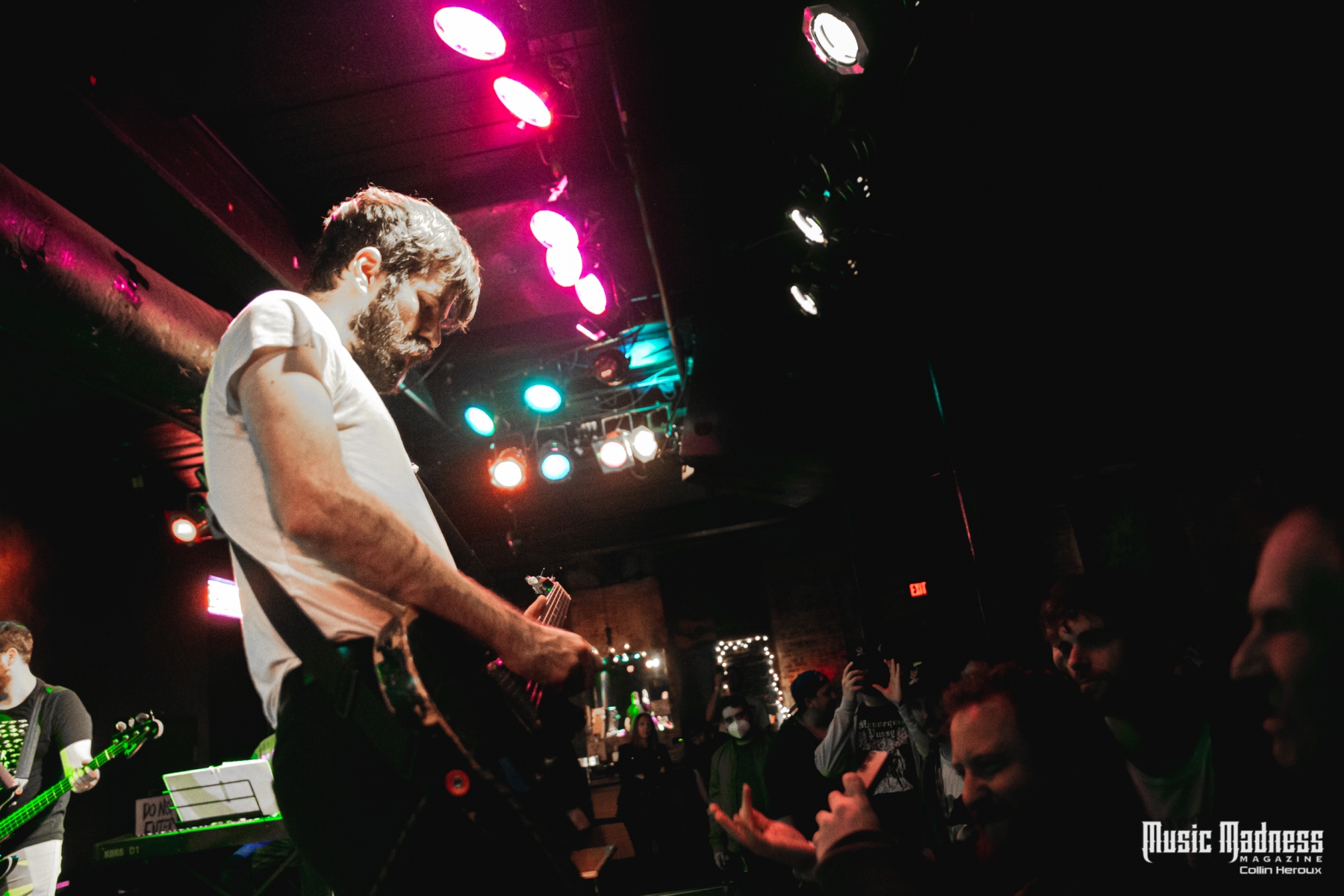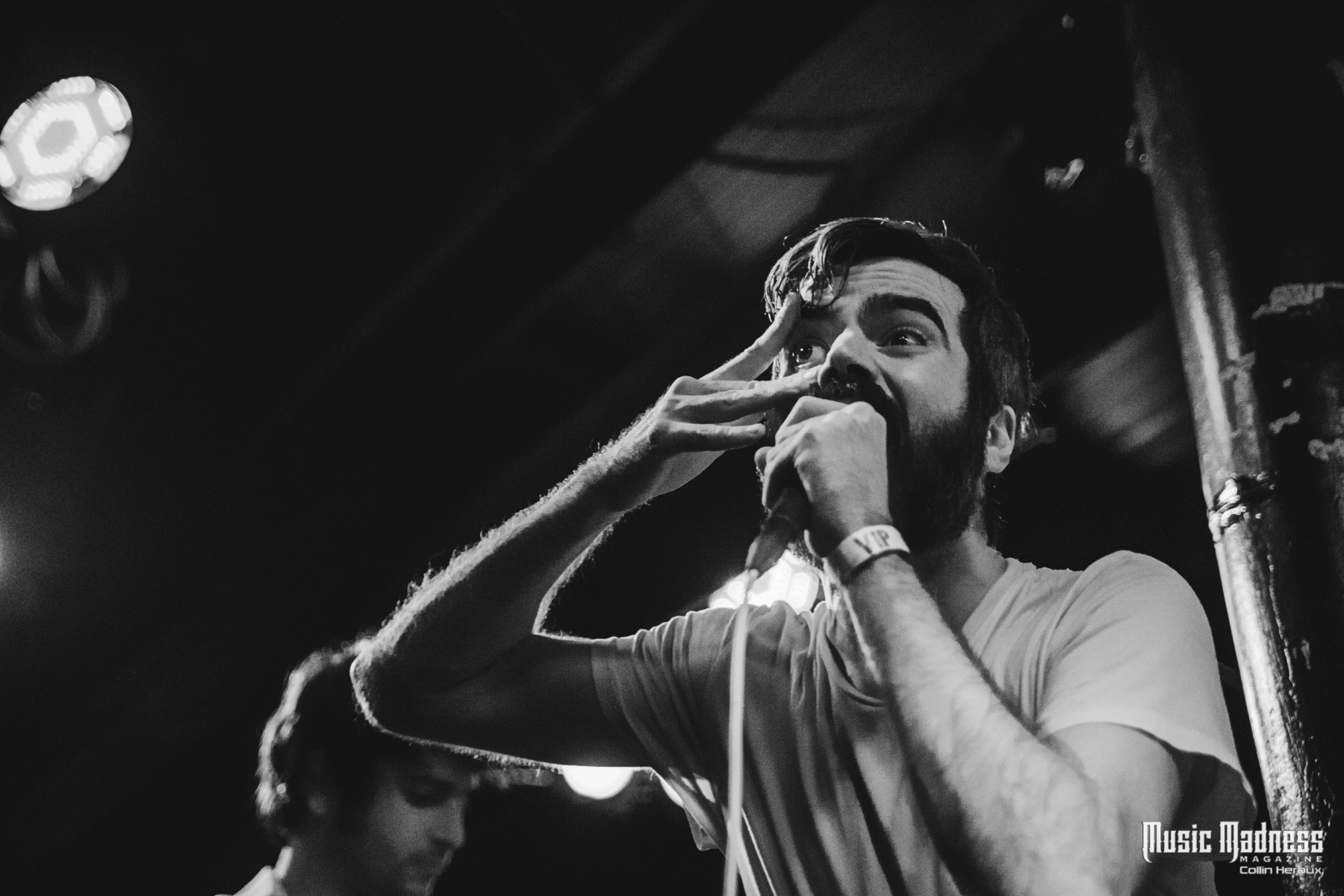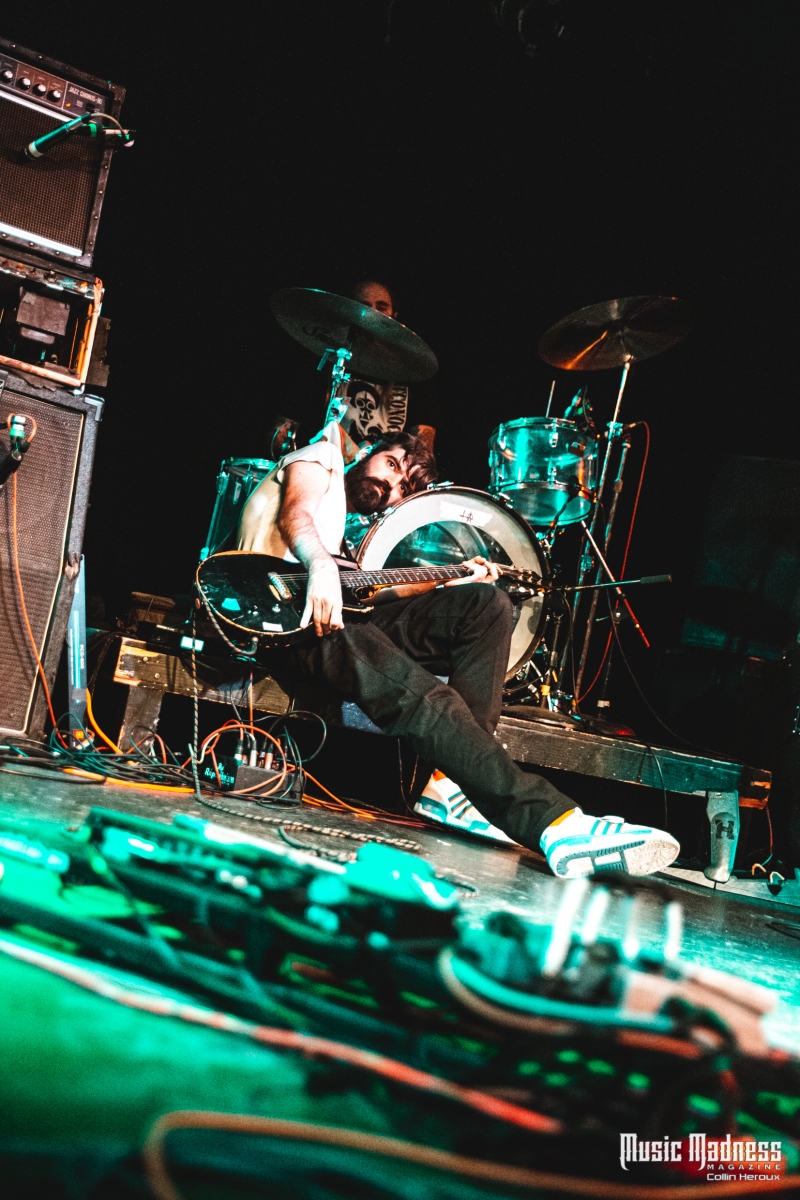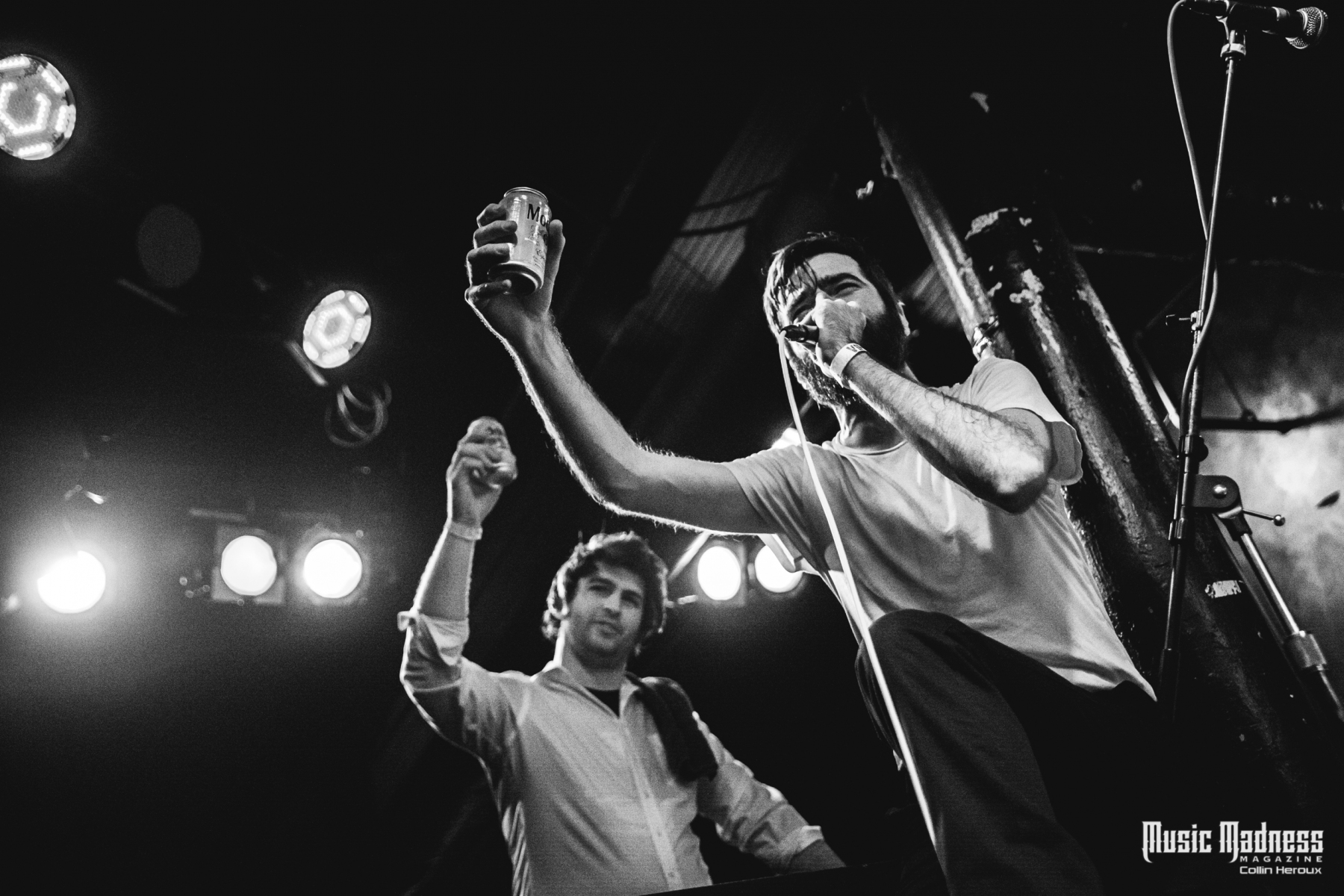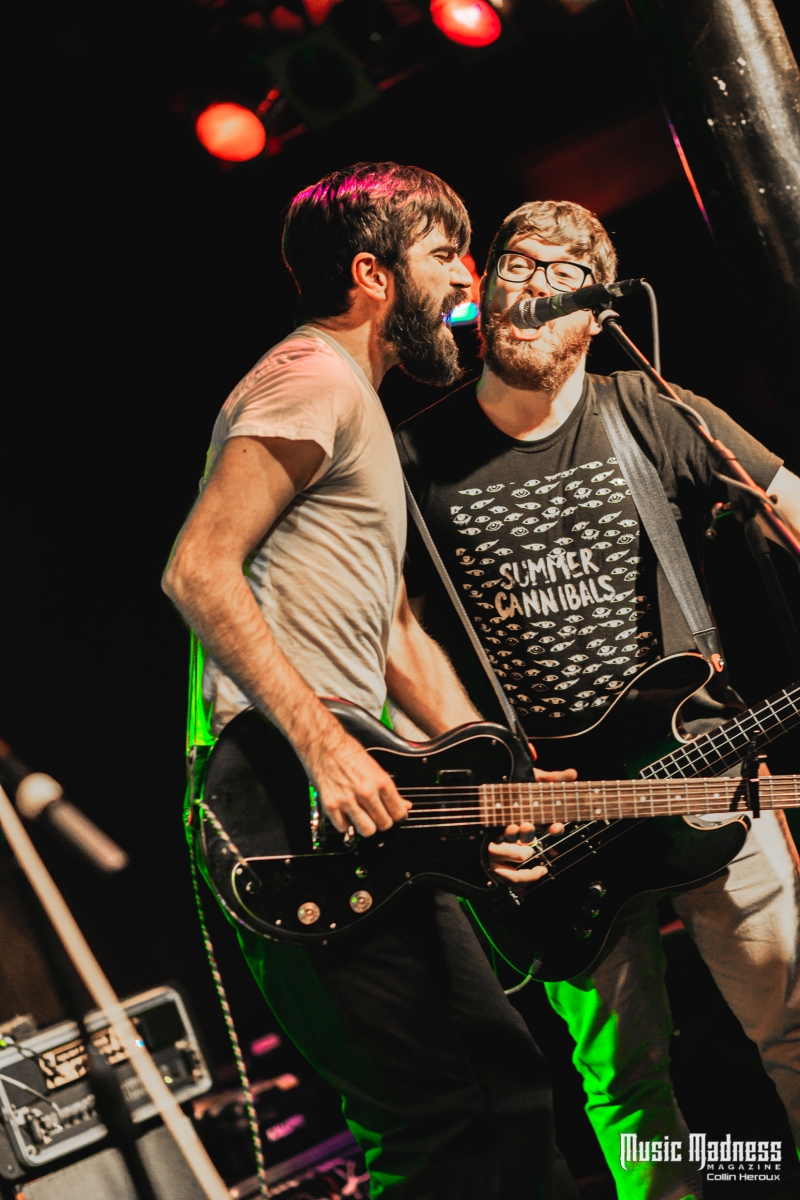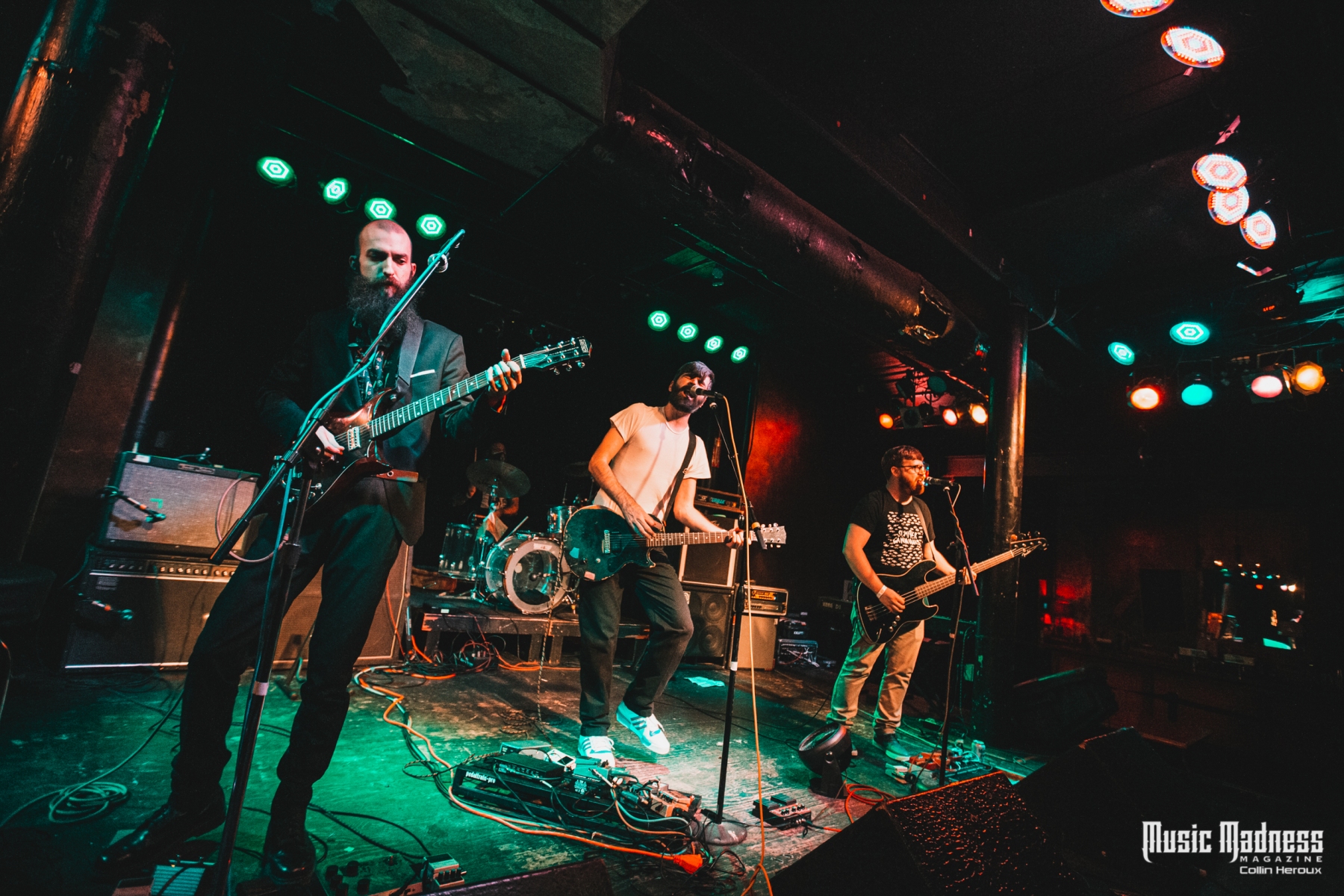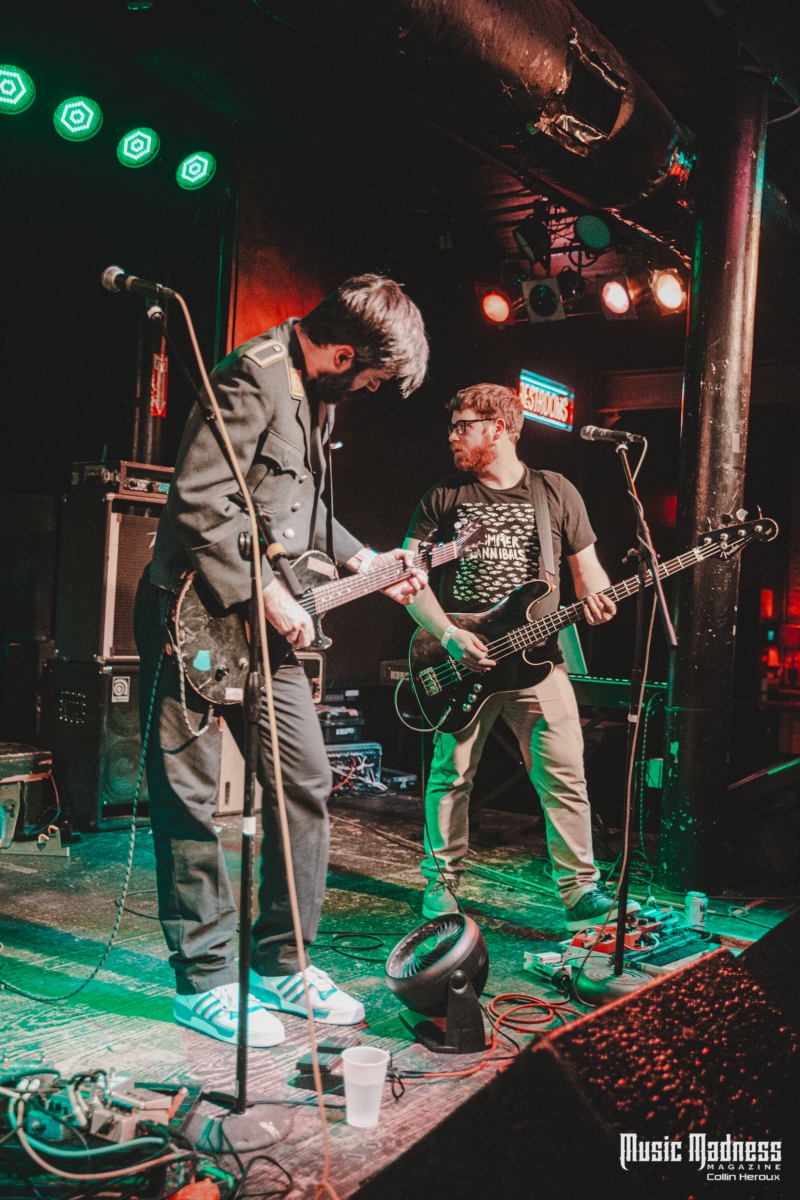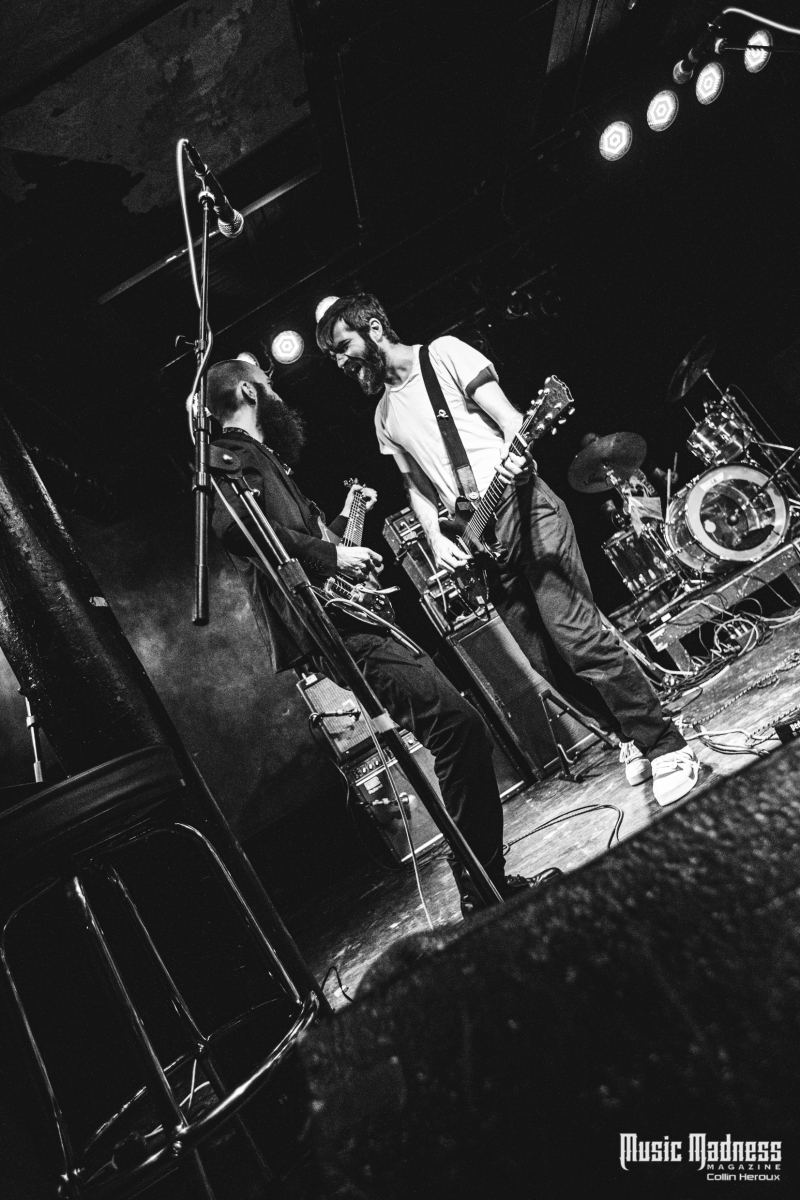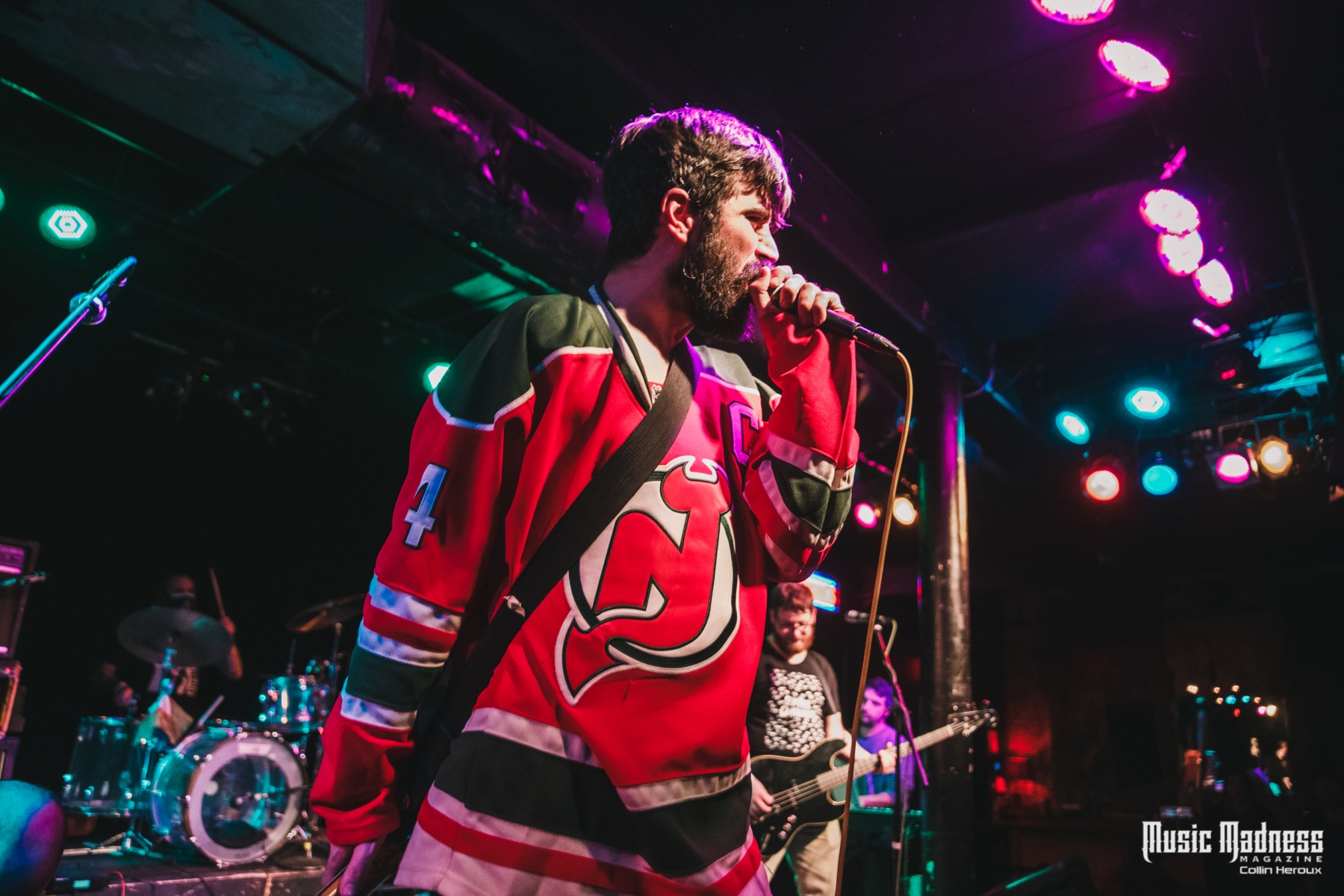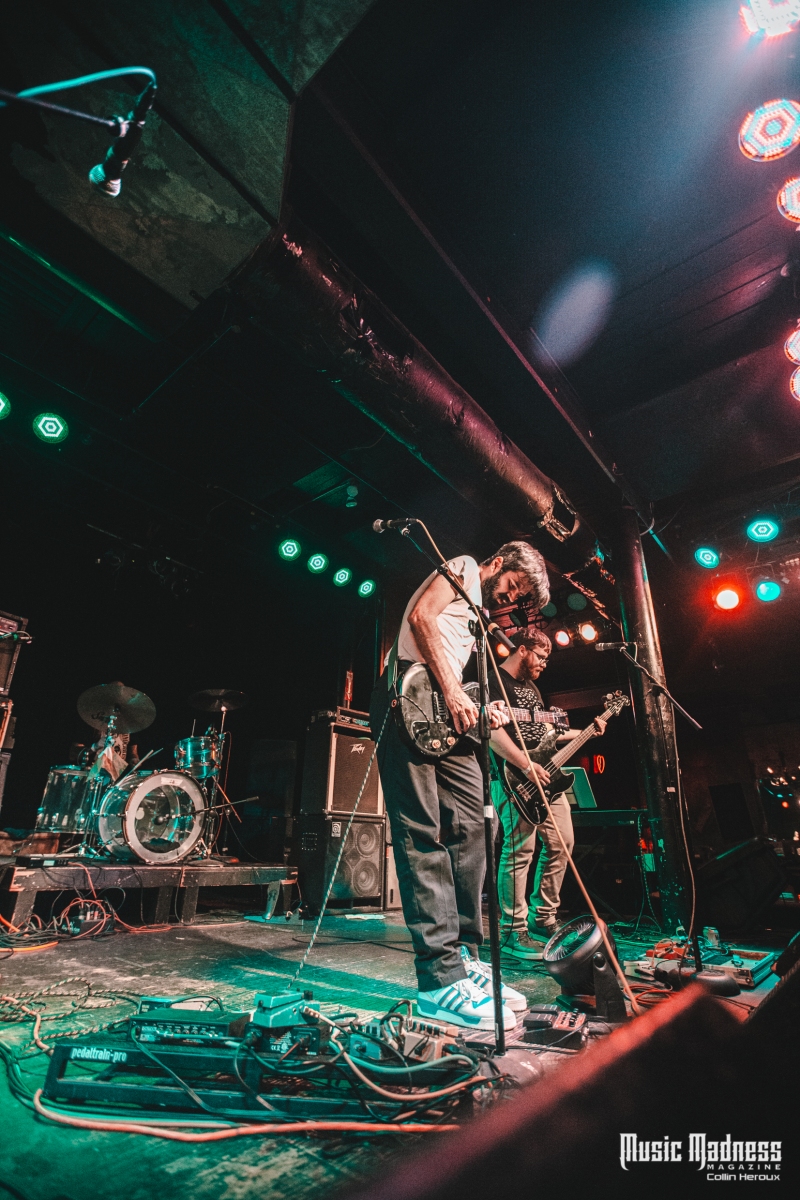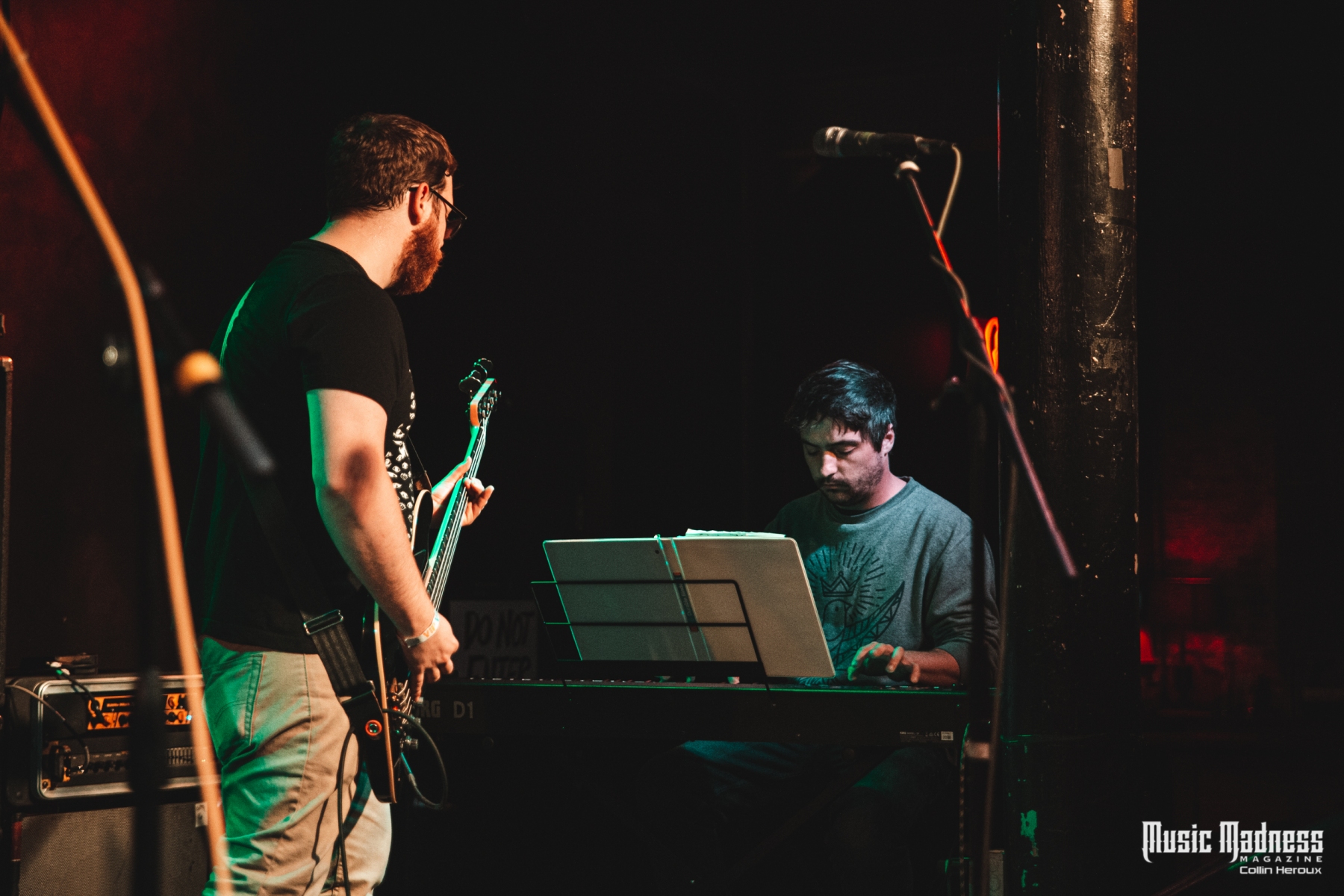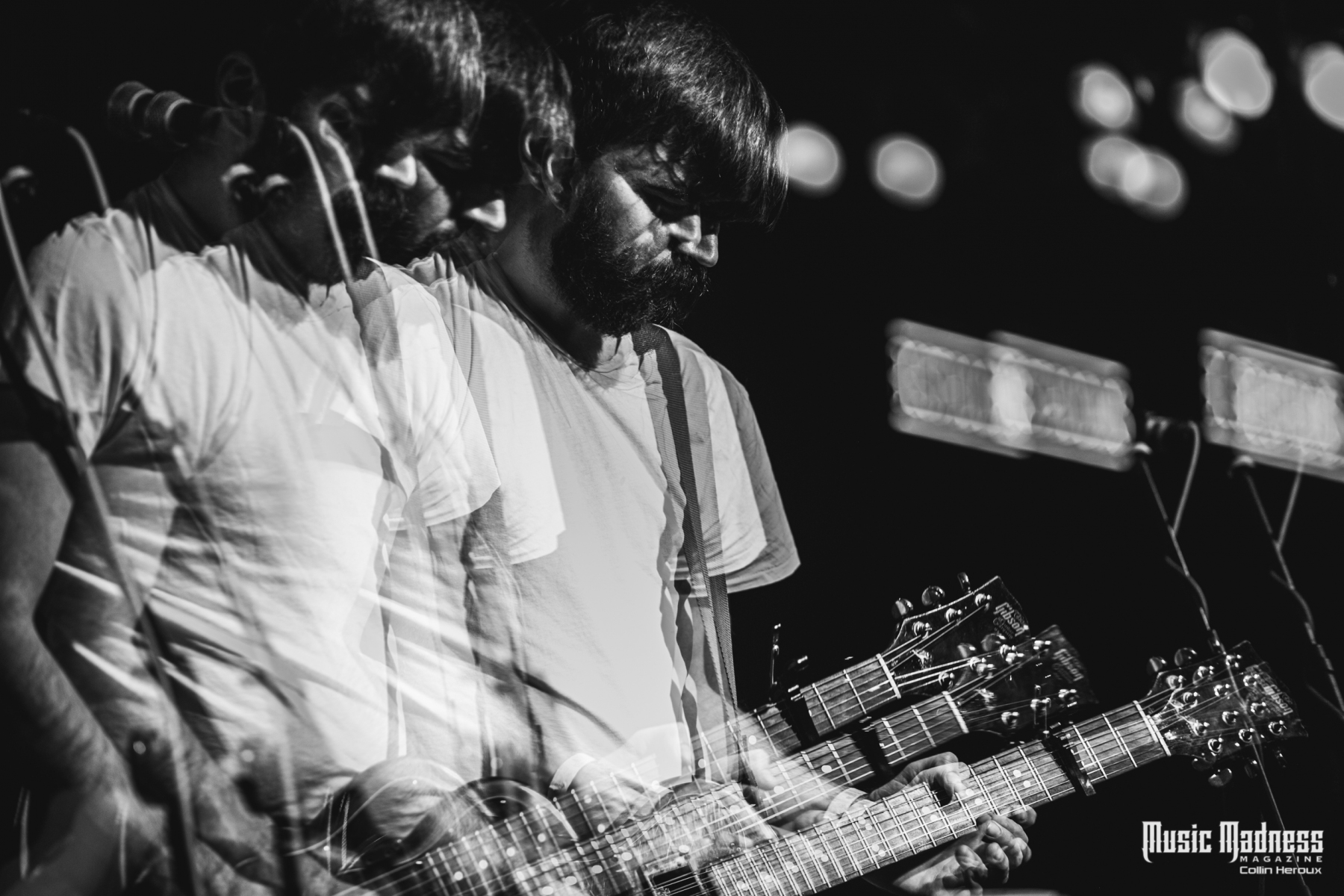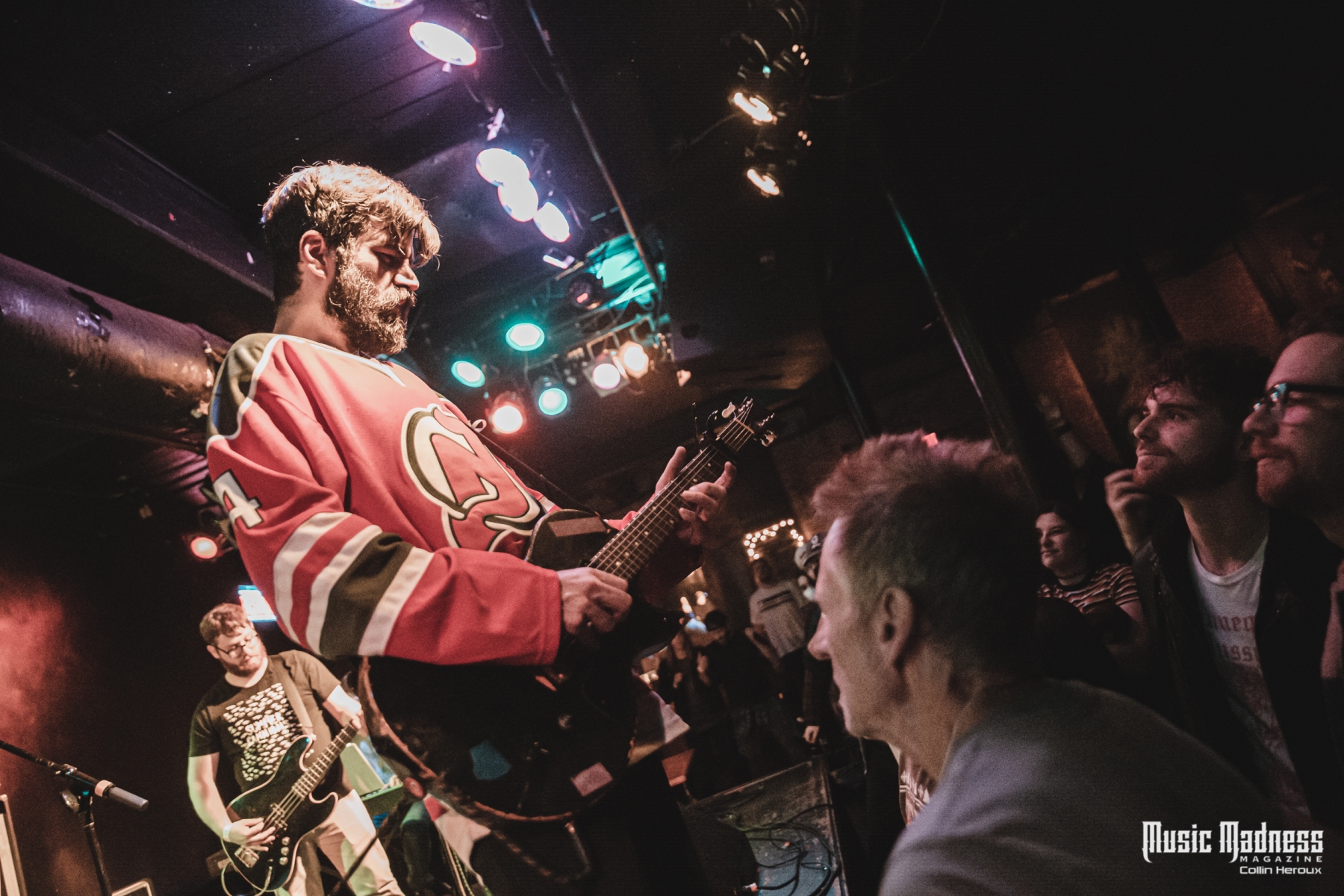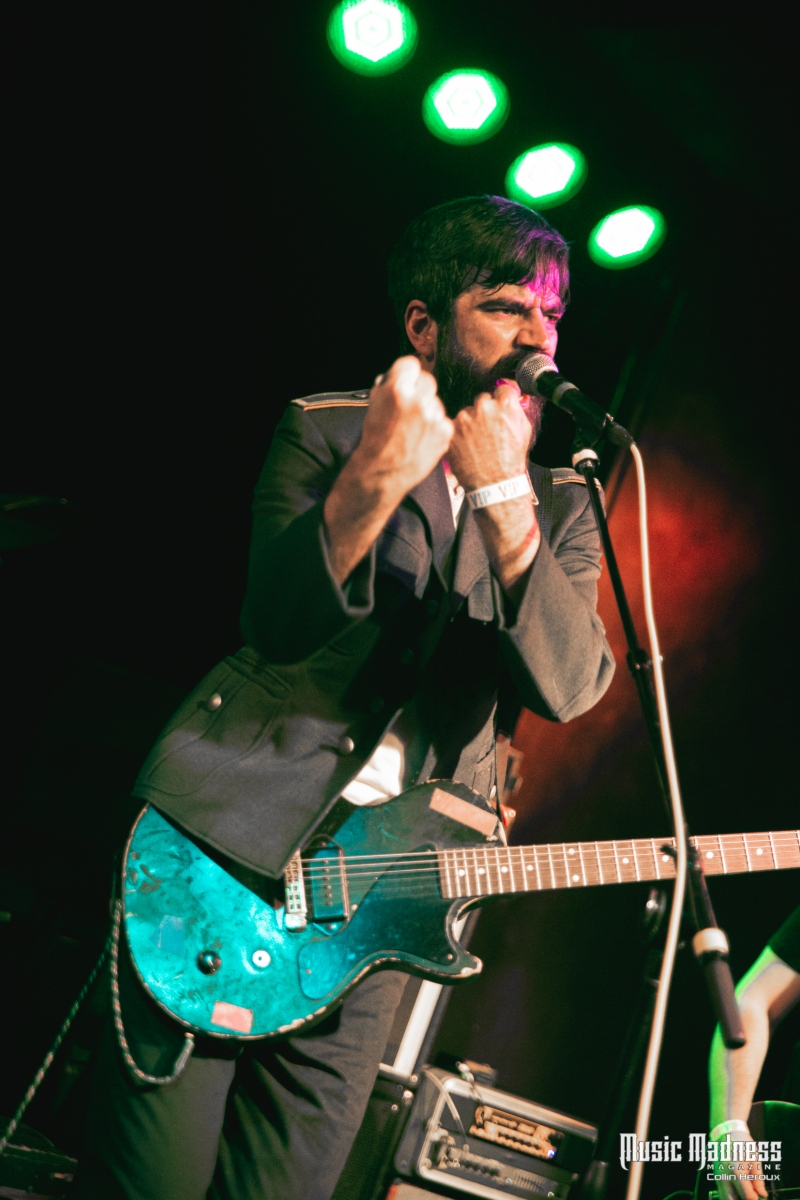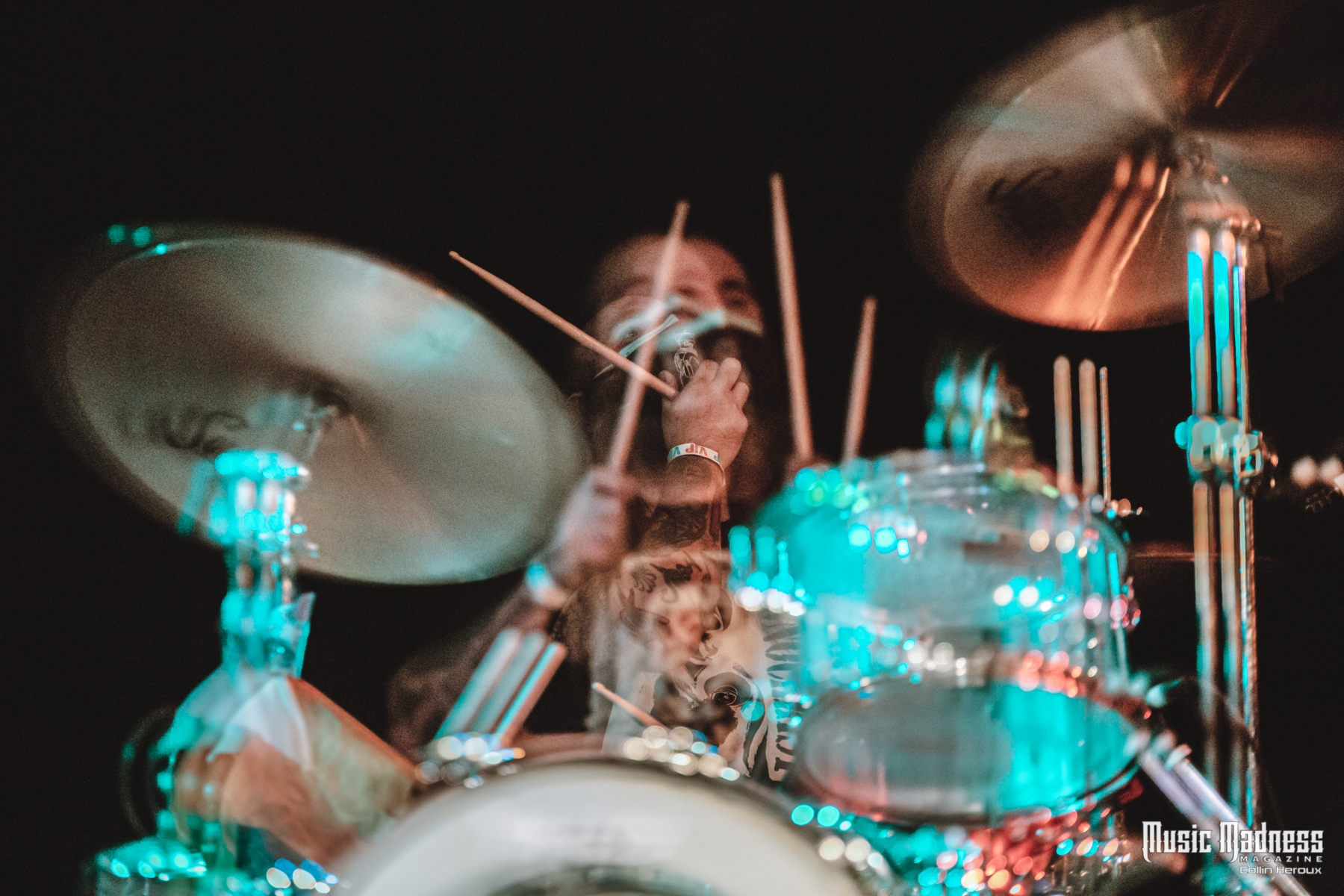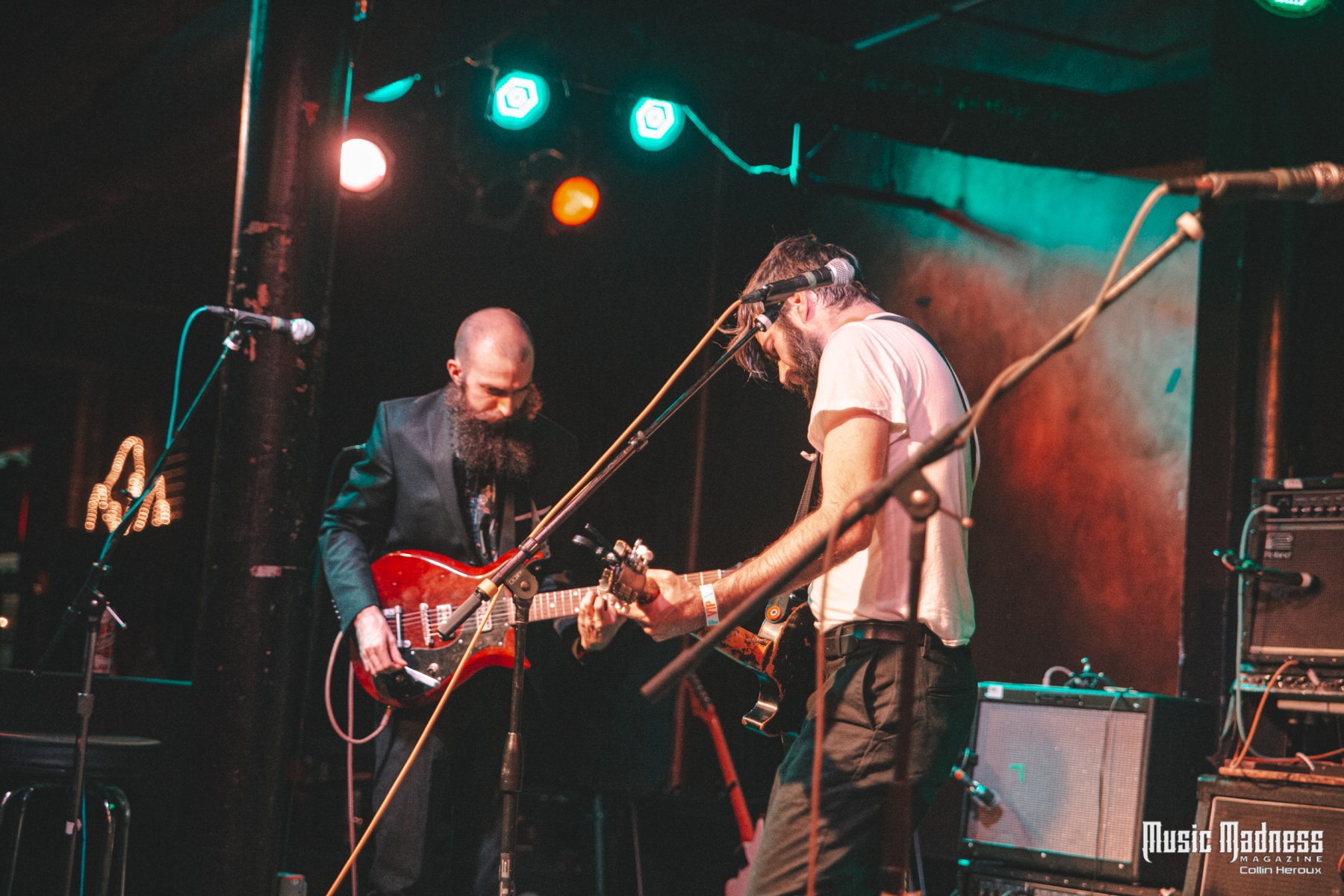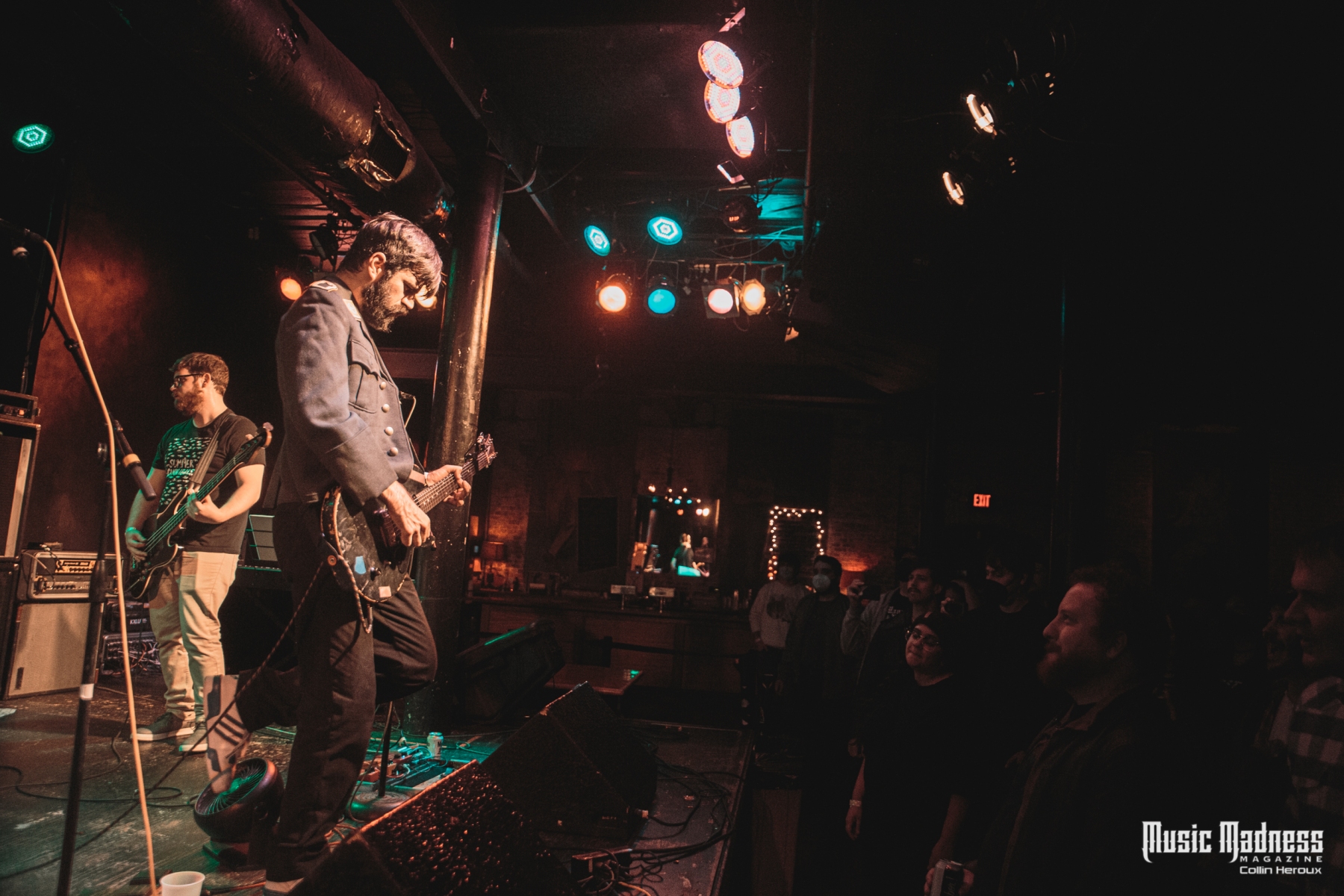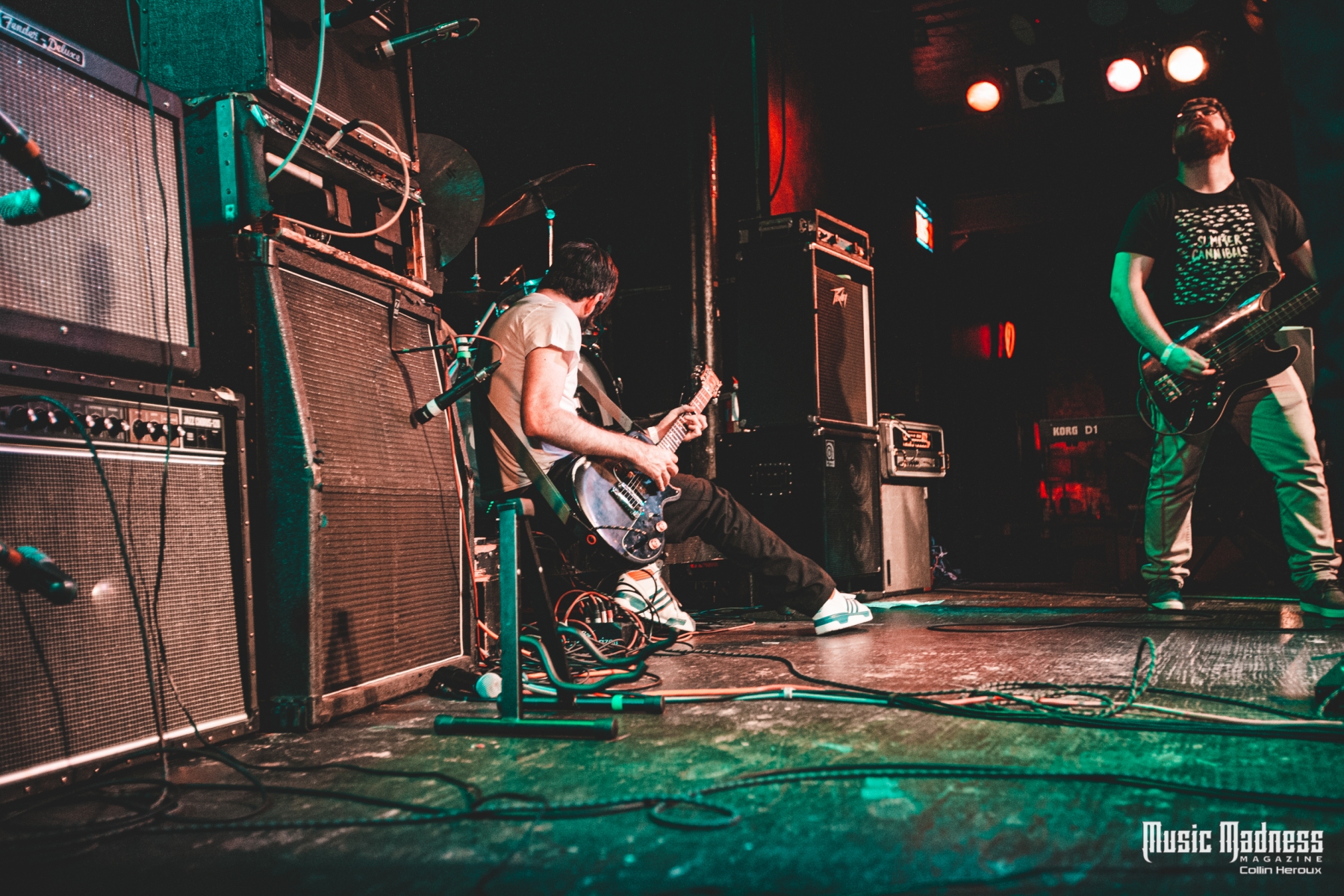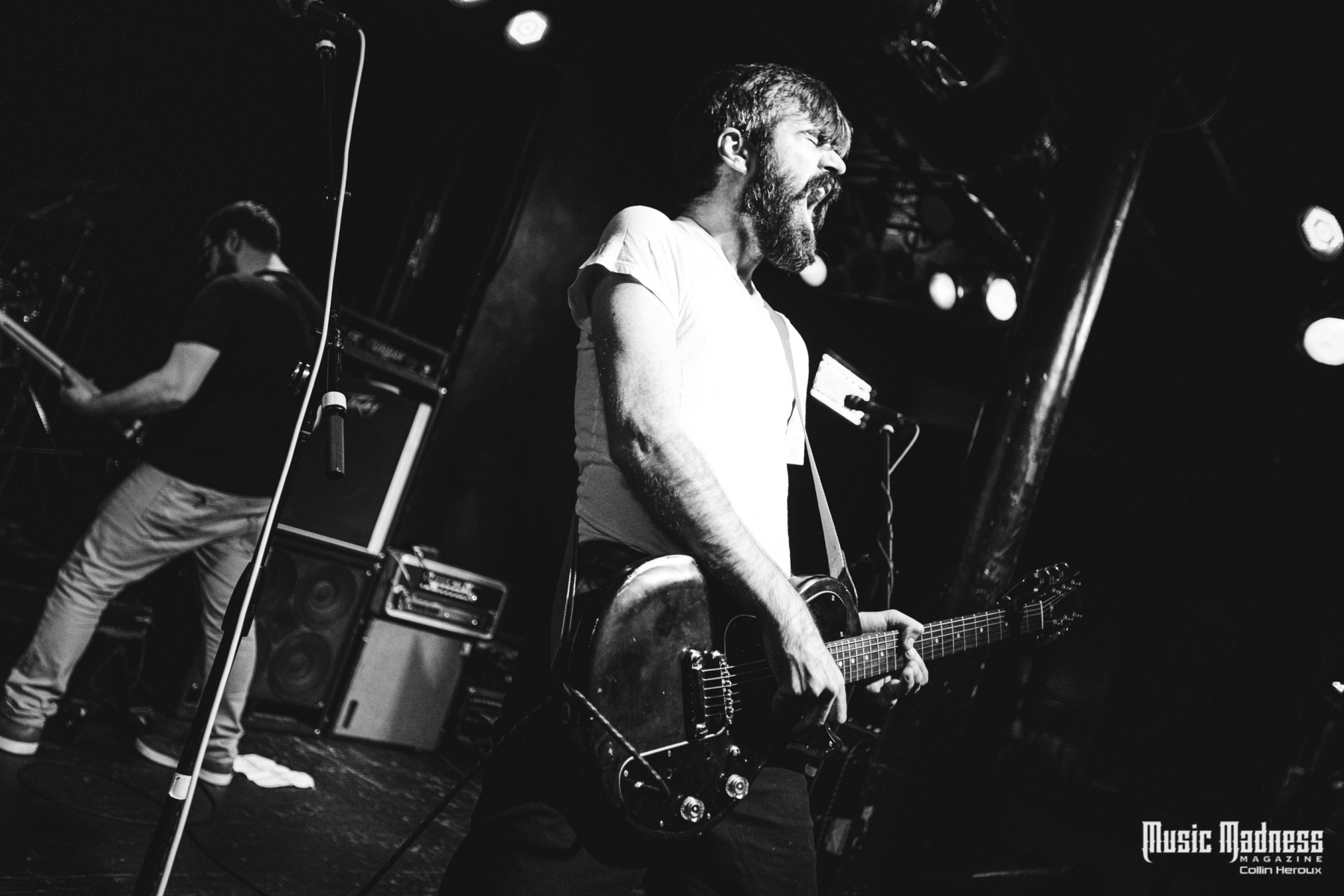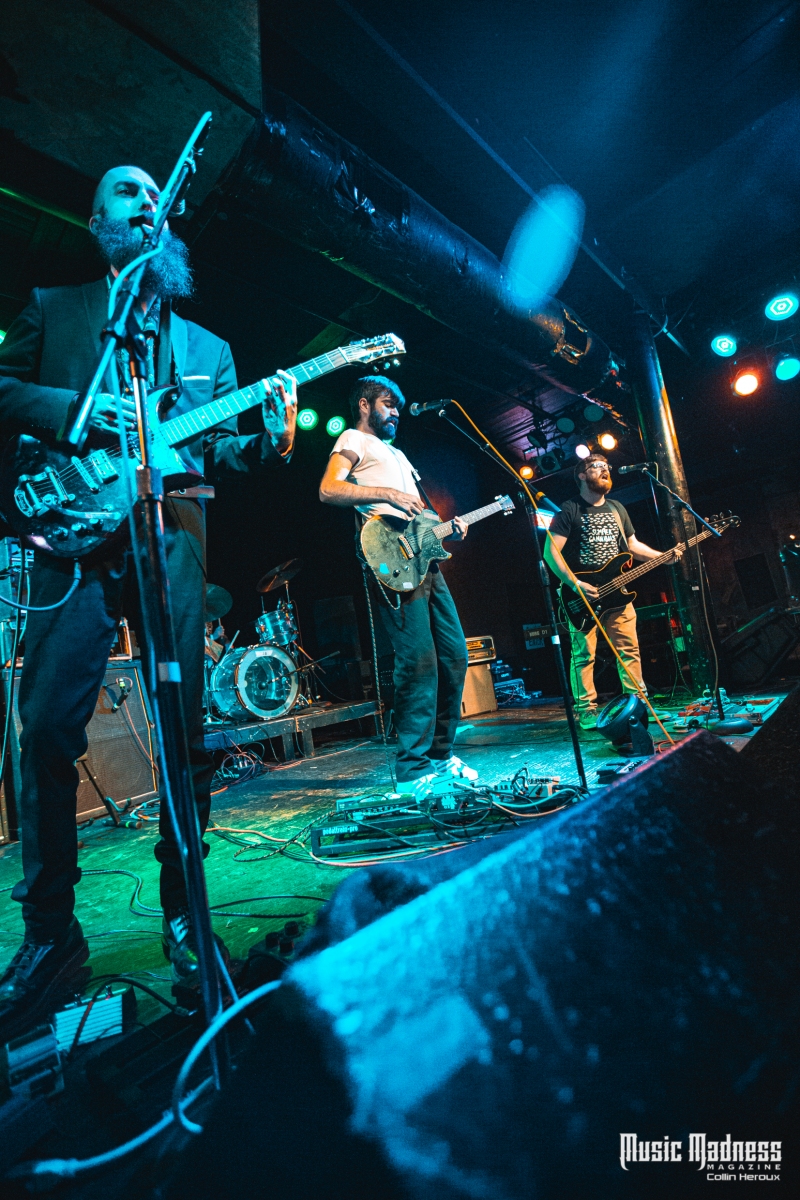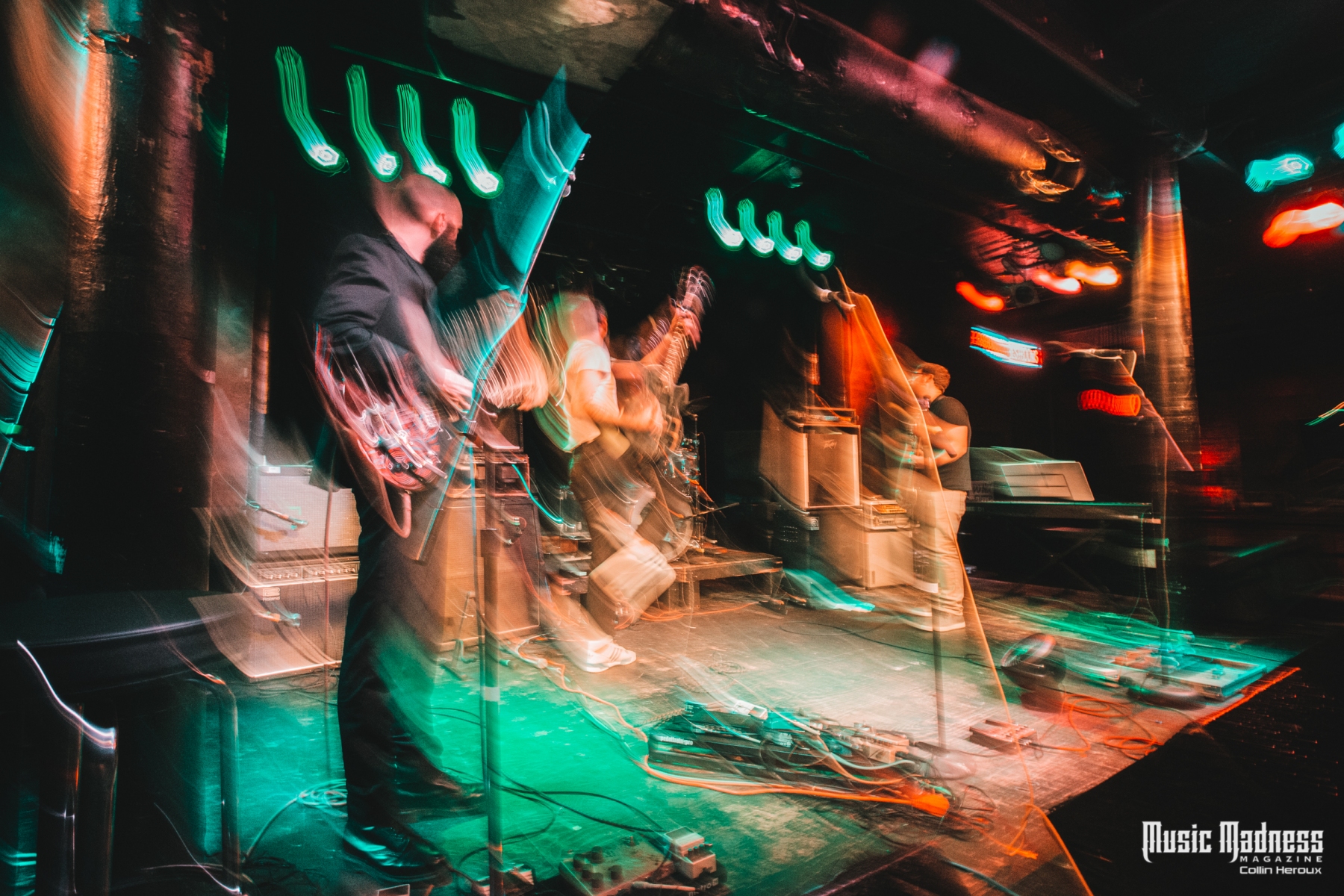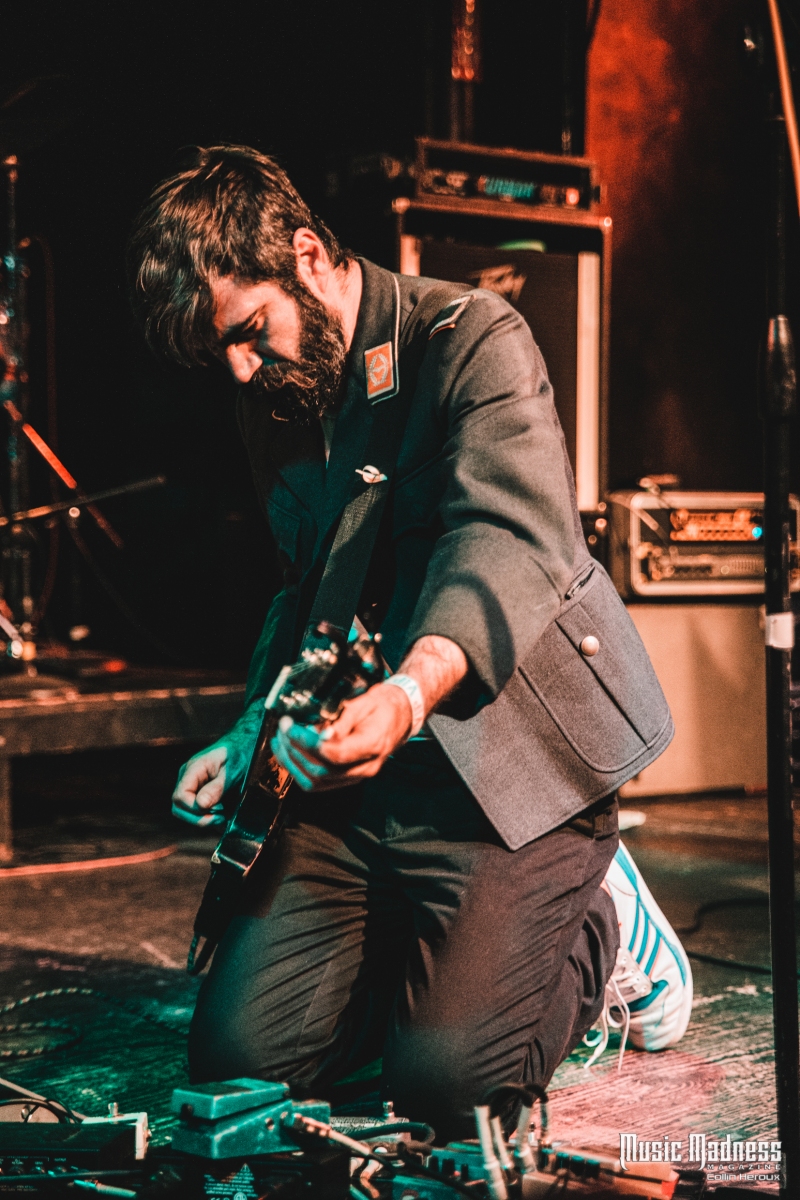
What better way to celebrate the 10th anniversary of an album that begins with a chronicle of transplantation from New Jersey to Somerville than with a tour that starts out walking in that very path? That’s the itinerary for Jersey-based rock band Titus Andronicus, who stopped midway between those two beacons at Pawtucket’s The MET to perform their 2010 LP The Monitor from front to back, to mark the decade and its brand new reissue and remaster. The album, named for one of the earliest Civil War-era ironclad battleships, sets amid a pastiche of mid-1800s imagery frontman Patrick Stickles’ lyrically-dense accounts of internal struggle, paired with the fury and rage of guitars that cement them as one of the last true great rock bands.
While also (and accurately) called punk rock, there are undeniable power chords here that echo all the way back to the inception of the genre, avoiding the classification of being “post-” anything. They’re pure, uncut, blistering rock music with a loquacious bent, alongside contemporaries like Spoon and The Hold Steady – and the latter band’s Craig Finn, also a frequent purveyor of the mythical Boston, actually makes an appearance on The Monitor, reading a Walt Whitman poem when the author could not be on hand to record vocals himself, inconveniently having died a century prior.
Before the band gets down to the project at hand, however, they open with a few other cuts from different time periods and even different bands, opting for a faithful rendition of Thin Lizzy’s classic ‘The Boys Are Back in Town’ as a bit of a tongue-in-cheek commentary on this being only their second show on a long-awaited return to the road. Following that, Stickles comes to the mic and reminds everyone with a wry grin from underneath his thick black beard: “We don’t just have one classic album, we have six!” Getting into the groove of the night, they play an assortment of highlights from the rest of their discography, including ‘Fatal Flaw’ and the beautifully wordy ‘Dimed Out’ from another concept album of theirs, The Most Lamentable Tragedy. But after ‘Tumult Around the World’ from their most recent disc, An Obelisk, the main event begins in earnest.
Stickles dons a period-appropriate uniform and segues into ‘A More Perfect Union’, which sets up the album with a rollicking account of leaving the Garden State behind and welcoming Massachusetts with open arms, mercurial weather and other hostile conditions be damned. Words spilling forth a mile a minute, littered with historical touchstones and corruptions of Springsteen, Simon, and Garfunkel – the song and The Monitor as a whole are perhaps best encapsulated by the quote that plays from tape after the track, which closes with the statement, “… I will not retreat a single inch, and I will be heard.”
By contrast to the previous song, but certainly delivering on that promise, ‘Titus Andronicus Forever’ is dead simple, hinging on the refrain of “the Enemy is everywhere!”, forming the conceit of the album and revealing as was hinted in the previous song that the capital-E Enemy – the narrator’s turmoil – cannot be defeated by a mere change of scenery. The rest of the album chases these themes far and wide, charting a path past and present across the east coast and through a vast emptiness of isolation and self-deprecation, conjuring the grisly imagery of war, and alternating between articulate despondency and ferocious defiance even at the end of one’s rope.
While there’s never really a lull in a Titus Andronicus set, there’s a certain shift about two-thirds of the way through the night’s massive, more than two-hour set where the band retires backstage and Stickles is joined by a younger man wearing a white shirt and the unmistakable shoulder-borne towel of a bartender. Accompanied only by keyboard, it becomes immediately clear why he’s been drinking water thus far, as over the course of ‘Theme from “Cheers”’ and ‘To Old Friends and New’ he polishes off his companion’s offering of three cans of Modelo, right arm resting on the black cloth of the table he’s leaning on, sneaker of his left foot resting casually atop a monitor wedge. Towards the end he rises slowly, returning to where he’s left his well-worn guitar onstage, picking it up as the band rejoins and they launch into ‘…And Ever’, which repeats that the Enemy is (still) everywhere, with an added lyrical flair that paints the narrator as weaker and sicker nearing the end of the album.
But in that barroom denouement, the struggle that started more abstract has taken a bit more shape from Stickles’ confessionals, explicitly painting a picture of a relationship in dissolution, final salvos of defeated acceptance between partners on their way out. “How can I hold it against you if you answer the call of the wild?” he wonders, contenting himself that, “if you know nobody is ever going to suffer for you like I did,”, then, whatever happens, is alright, and onstage he howls that final self-soothing mantra with all the anguish he must’ve felt when the line was first written.
Then comes the time for the album’s conclusion, ‘The Battle of Hampton Roads’. Named for the battle between the USS Monitor and the CSS Virginia in 1862, just as those ships did off the east coast Stickles empties all barrels at any target he can find, from rage-filled frat boys victimizing those around them to humanity as a self-defeating whole to finally himself, whom he excoriates with the admission that he hasn’t found the will to change his self-destructive patterns. Perhaps the most important thing to remember about the real-life Battle of Hampton Roads is that nobody won.
As in the opening line of the song, “two great ships pull back to their ports” empty, but both have survived, simply worse for wear. Stickles’ narrator slinks back to Jersey in shame, regret, and fundamentally the same isolation he began in. The civil war of The Monitor is a civil war inside one’s soul, beset on all sides in all locales by self-destructive tendencies you can’t seem to escape. It’s an immensely moving album, a psyche laid bare on the table; and in its closing stanza, Stickles admits what he’s been leading to all along: he needs his Enemy as much as it needs him for sustenance. As he cries before the song ascends into its final instrumental crescendo, “Please don’t ever leave.”
Photos and review by Collin Heroux

